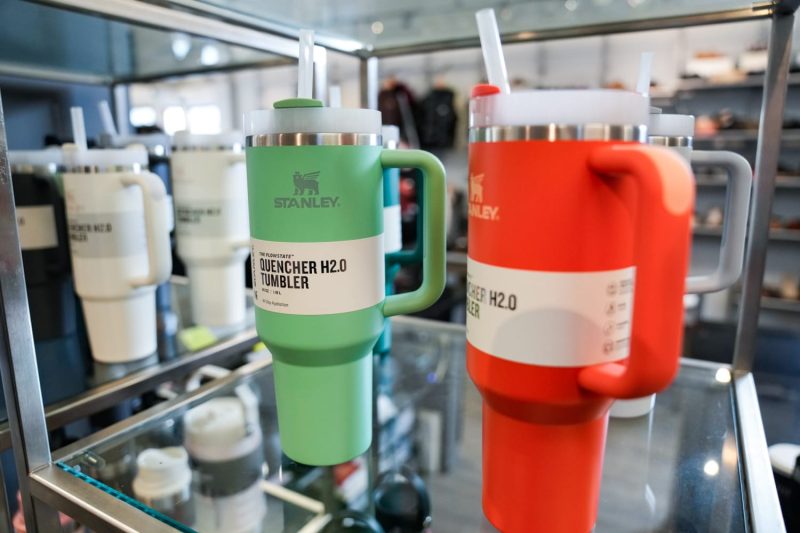As an influential organization in the drinkware industry, Stanley, best known for their tumblers, specifically their ‘quenchers’ line, is currently facing a legal battle regarding alleged lead use in their products. This situation emphasizes the significance of consumer protection laws and corporate responsibility for ensuring the safety of their products.
Stanley’s ‘quenchers’ are known for their ability to keep beverages at their initial temperature for extended periods. This promising attribute, combined with their sleek design and availability in a variety of sizes, has made the product line one of the company’s best sellers. However, the recent claim of lead contained in these fashionable tumblers casts a shadow over their popularity.
The lawsuit was brought against Stanley by a group of consumers who have expressed concerns regarding the use of lead in the manufacturing of the ‘quenchers.’ This claim focuses on the potential use of lead in the ceramic components within the tumbler’s construction. The primary concern being that contact with food or beverages could lead to lead contamination posing significant health risks.
As per the U.S. Centers for Disease Control and Prevention (CDC), even a small amount of lead can pose a health risk, especially to children. Overexposure can lead to heart disease, kidney disease, and reduced intelligence among other potential issues. With these hazards in mind, the lead allegations against Stanley take a more critical turn.
Stanley, like any other product-based company, is legally bound to ensure their products adhere to safety regulations, including the prohibition of harmful substances like lead. If the allegations prove true, this could imply a severe lapse of protocols on Stanley’s end, leading to a profound breach of consumer trust.
One of the principal points in this legal battle revolves around Stanley’s failure to comply with California’s Proposition 65. This regulation mandates manufacturers to provide clear warnings on their products if they contain any harmful chemicals, including lead. The omission of these labels, if indeed the tumblers do contain lead, could potentially influence the outcome of the lawsuit significantly.
In Stanley’s defense, the company has disputed the alleged claims and emphasized its commitment to maintaining strict compliance with all regulatory standards. Statements have been issued regarding the company’s routine testing processes that regularly check for harmful substances.
Regardless of the dispute’s outcome, the lawsuit has significant implications for Stanley. In the duration of this legal battle, the company stands to face a potential loss in sales momentum of its popular ‘quenchers.’ Moreover, the accusations also put the brand’s image at risk, making it imperative for Stanley to manage the situation appropriately.
Moreover, the suing case sends ripples around the industry as well. It serves as a reminder to other manufacturers about the necessity of stringent adherence to safety protocols. In an era where sustainable and safe production is in the spotlight, it is more important than ever for companies to meet the minimum safety standards, respect consumer rights, and ensure the safe delivery of their products.
As this situation with Stanley unfolds, it reignites conversations about product safety, corporate responsibility, and consumers’ rights. With the growing awareness and emphasis on consumer health and sustainability, this lawsuit could set a precedent for future cases of such nature. Whether Stanley succumbs to the allegations, or it can prove its innocence, this event underscores the importance of trust, transparency, and adherence to safety standards within the commercial industry.




